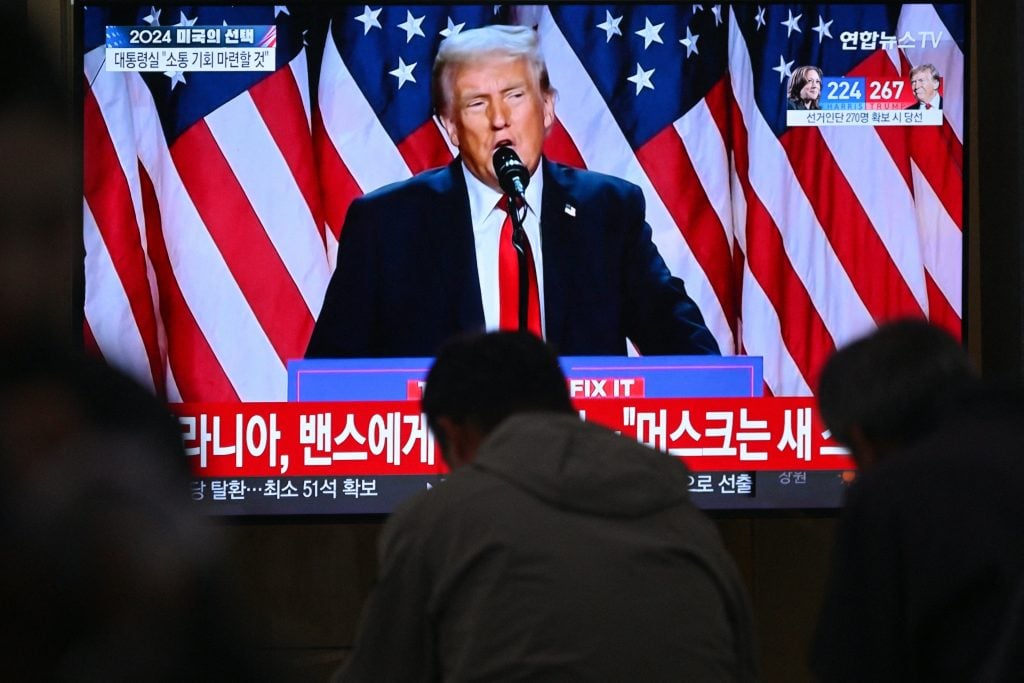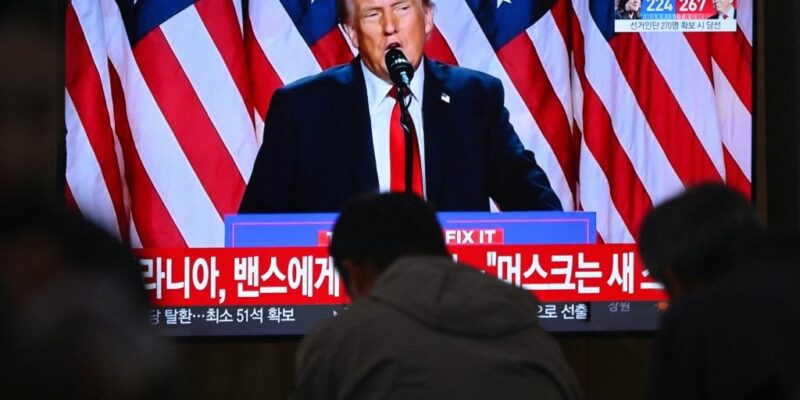
Donald Trump’s victory in the US presidential election has sent the dollar surging against both G10 and emerging market currencies in a development that has potentially significant macroeconomic repercussions for African countries.
As Trump’s victory became clear, the so-called “Trump Trade” sent 10-year Treasury yields 0.16% higher at 4.44%, while the dollar index, which tracks the greenback’s performance against a basket of major currencies, recorded its biggest single-day gain since November 2022. The dollar strengthened by as much as 1.5% as the results emerged in the early hours of the morning.
The Trump presidency is widely expected to see the dollar strengthen further, mainly because of his pledge to increase tariffs significantly on imported goods. During the campaign, Trump said he would increase tariffs by a further 10% on most foreign products, while goods from China could be subject to tariffs as high as 60% or more.
Tariff takeoff
Trump has also threatened to impose tariffs of 100% on goods from countries that seek to move away from the dollar for international trade. This comes at a time when many African countries are seeking to diversify away from the dollar, with Zambia, for example, collaborating with the Bank of China to promote the use of the Chinese renminbi (RMB) as an alternative to the greenback in southern Africa.
Countries exploring dollar alternatives, such as Zambia, will likely be forced either to drop the idea or face significant barriers to trading with the States. Trump has pledged to defend the dollar’s status as the world’s reserve currency aggressively, saying that this status being undermined would be like “losing a war.”
Most analysts agree that Trump’s position on tariffs will mean the cost of imported goods in the States will go up, contributing to elevated levels of inflation and therefore requiring the Federal Reserve to maintain higher interest rates. Higher rates, which would offer higher yields for foreign exchange traders exposed to American assets, would in turn encourage a stronger dollar.
Higher debt servicing costs for Africa
This would inevitably have repercussions in Africa, where the value of local currencies could be set to depreciate relative to the greenback. In the last 24 hours alone, the dollar has already gained almost 2% against the most widely traded African currency, the South African rand (ZAR).
As a result of this dollar appreciation, it is likely that African countries will find it more expensive to service their dollar-denominated debt, which will become relatively more expensive in local terms. The environment of higher rates in the States which analysts now expect would also serve to make debt repayments costlier still, eating further into African governments’ budgets.
Several African countries have already struggled under the burden of higher interest rates and a historically strong dollar, which appreciated significantly during the Covid-19 pandemic and its aftermath. While domestic factors were also at play in each of these cases, the last few years have seen Ghana, Ethiopia, and Zambia all default on their debts partly for this reason.
Fears of further defaults have somewhat dimmed in recent months – although some African countries, such as Kenya, continue to face huge piles of external debt that poses macroeconomic risks. But the period of a significantly stronger US dollar that is now expected will undoubtedly further complicate the economic picture for many African governments.











Comments